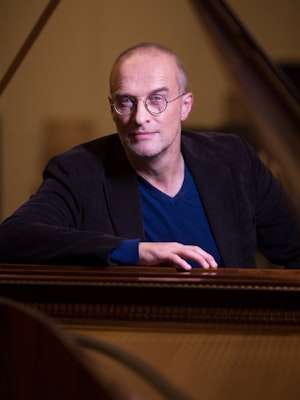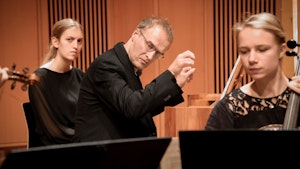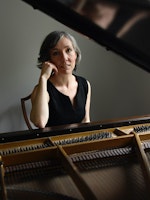It's been almost half a year since the Norwegian Academy of Music recruited the fortepiano guru Bart van Oort to its faculty. Rumour has it that he's very well-established in early music
Van Oort, from the Netherlands, specialises in historical performance practice and wastes no time – after a brief introduction, he launches into an engaged monologue on interpretation. Compared to the modern piano, playing a classical piece on the fortepiano is about much more than just the sound:
"Often, we try to interpret what is written in the notes as best we can, but then we don't consider that the instruments of the classical and early romantic periods were different from today's," he says.
Knowledge-based performance
Composers expected something different from the instruments they wrote for than what our instruments do now, he explains, using Beethoven as an example.
"If we look at notation as instructions, what comes out of the instrument is not in line with the period's style."
He points out the limitations of notation as a language and instead encourages us to look at them as descriptions of how the composers envisioned the sound of the music.
He admits some of this may be subjective but still insists that 80% can be confirmed and proven through letters and other sources from the period.
But most of it is found in the instrument itself. The fortepiano has more possibilities to colour and articulate, and the performance depends on how the performer uses the instrument to speak, he says.
"This music is rhetorical, so I use the word 'speak.' On the other hand, the modern piano is an instrument that can sing, but in early music, it's more about consonants than singing."
At NMH, Van Oort doesn't work exclusively with pianists but with musicians on several different instruments. He doesn't want to tell his students what's right or wrong but rather create awareness of what's possible and, most importantly, how to translate the music into a modern language in a good way. It's no longer enough to be able to play a brilliant solo concert – you also have to know what you're doing on a deeper level, he says.


